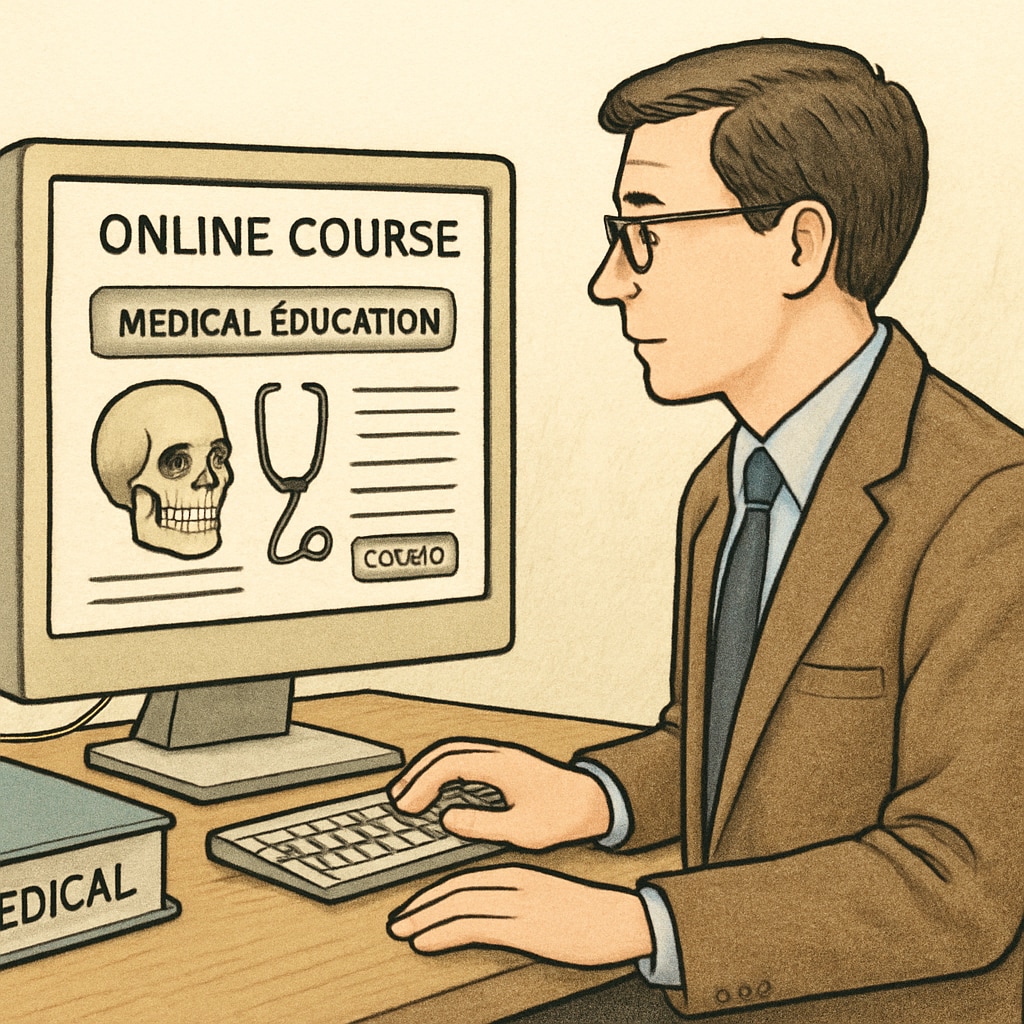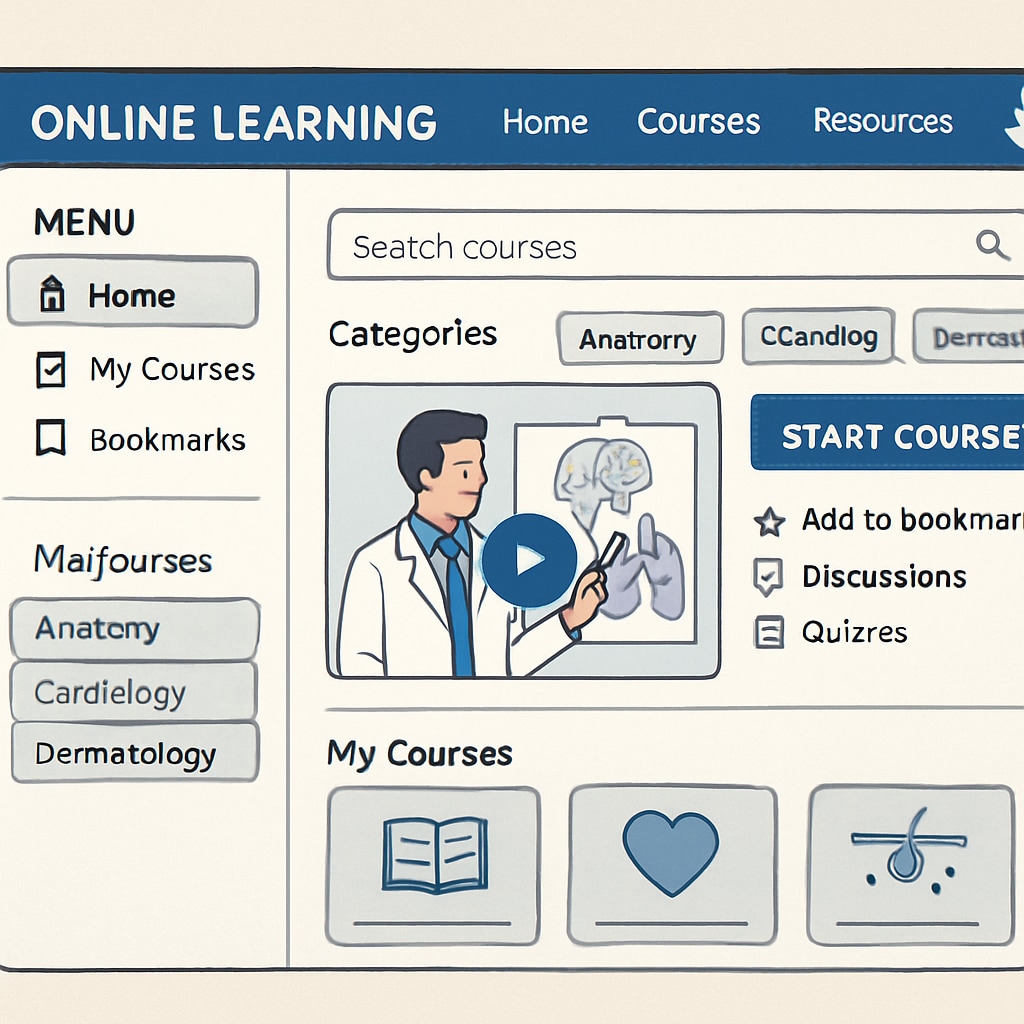In recent years, the demand for accessible medical education for non-medical backgrounds has been steadily rising. Many K-12 educators, driven by the need to incorporate health-related topics into their teaching or simply out of personal interest, are searching for online courses that provide medical knowledge tailored to their expertise level. However, they often face a dilemma: the content is either too advanced or overly basic. This article offers a practical guide for educators looking to bridge the gap and gain specialized medical knowledge effectively.
Why K-12 Educators Seek Medical Education
Understanding why educators want to explore medical education is the first step. For some, it’s about enriching their curriculum with health science topics to engage students in subjects like biology or anatomy. For others, it’s about staying informed to address student health concerns better. Regardless of the motivation, finding the right educational resources to fit their non-medical backgrounds is critical.
Moreover, with the growing importance of health literacy in schools, educators are increasingly required to have foundational medical knowledge. For example, understanding mental health issues or basic first aid can significantly impact a classroom setting. But where can one begin without a medical degree?

Choosing the Right Online Medical Courses
Online courses offer a convenient and cost-effective way to acquire medical knowledge. However, not every course is designed for non-medical professionals. To make the right choice, educators should consider the following:
- Target Audience: Look for courses explicitly designed for beginners or non-medical professionals. Some platforms, like Coursera and Udemy, offer introductory courses tailored to non-specialists.
- Accreditation: Ensure the course is offered by a reputable institution. Programs from universities or certified organizations often come with a guarantee of quality.
- Flexibility: Many educators have tight schedules. Opt for courses that offer self-paced modules and downloadable resources.
- Practical Relevance: Choose topics relevant to your needs, such as “Introduction to Human Anatomy” or “Mental Health Awareness in Schools.”
Coursera and edX, for example, feature courses from top universities like Harvard and Stanford, making high-quality education accessible to anyone.
Overcoming the “Too Advanced or Too Basic” Dilemma
One common challenge for non-medical professionals is finding content that fits their expertise level. Here’s how to strike the right balance:
- Start Small: Begin with basic courses and gradually progress to more advanced topics. For instance, rather than diving into complex pathology, start with “Introduction to Healthcare Systems.”
- Supplement Learning: Pair courses with accessible resources like podcasts or YouTube channels dedicated to simplified medical education. Channels like Osmosis and Khan Academy Medical are great places to start.
- Engage in Peer Learning: Join forums or social media groups for educators exploring similar topics. Peer discussions can help clarify difficult concepts and provide motivation.

Practical Applications for K-12 Educators
Acquiring medical knowledge is not an end in itself; its application is what makes it valuable. K-12 educators can use their newfound knowledge in various practical ways:
- Enriching Classroom Content: Incorporate health-related topics into science classes or create interdisciplinary lessons combining biology and physical education.
- Promoting Health Awareness: Organize workshops or awareness programs on topics like mental health, nutrition, and physical fitness.
- Improving Classroom Management: Recognize and address common health issues in students, such as anxiety or ADHD.
For instance, educators who complete a course on mental health awareness may feel more equipped to support students experiencing stress or anxiety, thus creating a more inclusive classroom environment.
Final Thoughts on Medical Education for Non-Medical Professionals
Medical education for non-medical backgrounds is no longer an insurmountable challenge, thanks to the proliferation of online courses. By carefully selecting resources and adopting a step-by-step approach, K-12 educators can gain the knowledge they need to make a real difference in their classrooms. Whether it’s through self-paced online courses, peer collaborations, or supplemental resources, the tools are readily available. Start your learning journey today and inspire your students with newfound expertise!
For additional resources, explore platforms like Khan Academy or Medical News Today, both of which provide accessible, high-quality content for beginners.


